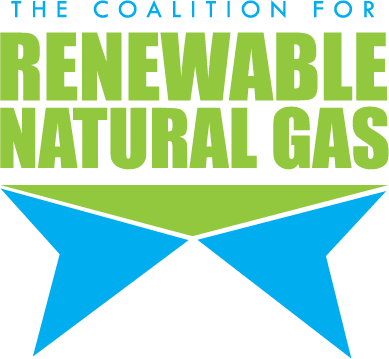Legislation aims to provide cost-effective means of reducing short-lived climate pollutant emissions
Sacramento, CA – September 26, 2018 – A new law in California will authorize the state to adopt a biomethane procurement program if it is found to be cost-effective, beneficial to ratepayers, and in advancement of the state’s environmental and energy policies. The legislation, authored by Senator Ben Hueso (D-San Diego) and signed by Governor Brown on Sunday, seeks to further develop a pathway for renewable biomethane to be injected into the gas pipeline system, thereby displacing fossil gas and reducing the carbon intensity of the natural gas system.
Senate Bill 1440 requires the California Public Utilities Commission, in consultation with the California Air Resources Board, to consider adopting specific biomethane procurement targets or goals for each of the gas corporations so that each gas corporation procures a proportionate share of biomethane annually. It requires the targets or goals to be cost-effective, the biomethane to be injected into pipelines in California, and the capture or production of the biomethane to directly result in environmental benefits to California.
In addition to providing a pathway for the de-carbonization of the natural gas system, biomethane procurement will assist the state in meeting the organic waste diversion and short-lived climate pollutant goals established by SB 1383 in 2016. Through SB 1383, the state mandated that 75 percent of organics be diverted from landfills but did not provide a market for it.
“To achieve our ambitious climate and energy procurement goals, California will need to deploy a balanced mix of strategies that spur innovation in the energy sector,” said Senator Hueso. “These strategies will require a fundamental shift in the way we power our homes and businesses, how we transport ourselves and the goods we use in our daily lives, and how we manage the lifecycle of our food and waste.”
California has set a goal of reducing greenhouse gas (GHG) emissions to 80 percent below 1990 levels by 2050. It has also set a target to reduce methane emissions by 40 percent below 2013 levels by 2030. The state has sought to reduce the methane emissions because they present a significant challenge in reducing the state’s overall GHG emissions. Methane has a global warming potential that is 25 times greater than that of carbon dioxide over 100 years, or 84 times greater over 25 years. This means that reducing emissions of methane in the near-term can have immediate climate, air quality, and public health benefits.
In 2015, methane contributed to about 9 percent of California’s GHG emissions. A majority of these emissions come from renewable resources such as landfilled organic waste, livestock manure, and wastewater. By creating a procurement program for biomethane, the state can work toward achieving its organic waste diversion and methane reduction goals by developing a market for the products of the diverted organic waste and captured methane. By utilizing renewable resources that would otherwise emit GHG’s, California can ensure grid reliability, renewables integration and decarbonize the residential and commercial sectors of its economy.
“Biomethane helps create a new holistic or ‘circular’ economy, as opposed to our current linear process of raw inputs and waste material outputs,” said Senator Hueso. “Connecting the ends of the linear economy into a circular whole is the only way forward to a truly sustainable future.”
SB 1440 was sponsored by the Coalition for Renewable Natural Gas (RNG Coalition).
